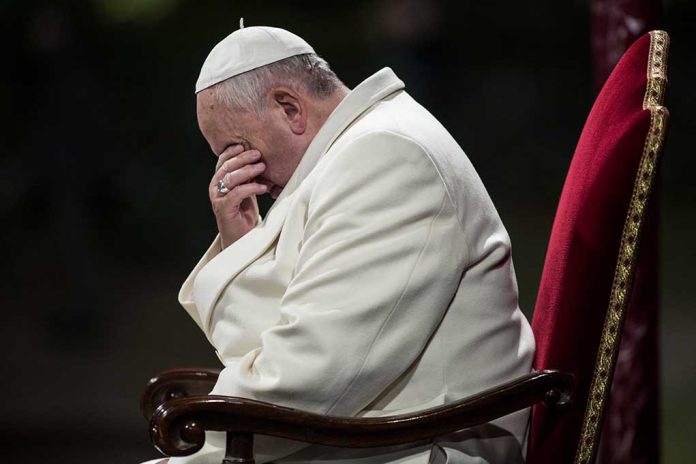
In a recent statement, Pope Francis expressed grave concerns about the spread of misinformation and its societal impact.
At a Glance
- Pope Francis warns about the dangers of misinformation on social media and AI.
- His message underscores the consequences of societal polarization due to fake news.
- The Pope calls for media literacy to enhance critical thinking.
- He criticizes cancel culture and redefined human rights for prompting divisive ideologies.
Pope Francis Addresses Misinformation
Pope Francis emphasized the dangers of misinformation during a speech delivered by a senior cleric due to his illness. He described how social media and artificial intelligence can manipulate public opinion and distort the truth, warning of the dangers they pose to societal cohesion.
Additionally, Francis highlighted how widespread misinformation polarizes society. He urged leaders to remain vigilant and prevent institutions from amplifying echo chambers that could destabilize peace. His message followed a recent shift by Meta, which stopped its third-party fact-checking in the U.S., moving to a crowd-sourced model. This controversy sparks more discussions on how the verification of facts should be handled online.
Pope Frances Critiques Cancel Culture and Human Rights Reinterpretation
Pope Francis also voiced criticism against cancel culture and the contemporary interpretation of rights such as abortion, arguing they contradict fundamental human rights.
“In our time, the denial of self-evident truths seems to have gained the upper hand,” said Francis.
He warned of the risks where international organizations might distill into exclusive groups, unable to uphold the peace and stability they were designed to ensure. The denial of self-evident truths, amplified in part by media platforms, was matched by his shared commitment to advance media literacy, fostering a generation equipped with critical thinking skills and able to discern truth from misinformation.
Deepfakes and the Pope’s Indirect Involvement
Pope Francis’s openness and popularity have led to his name and likeness being used in AI-generated content without his consent. Digital artist RickDick’s creation of deepfake images, featuring the Pope alongside pop star Madonna, reignited conversations around the ethics of AI art.
“My goal is to make people think and, if possible, smile,” said RickDick.
Such deepfakes, meant for satire and provocation, raise questions about identity misuse, consent, and the broader impact of digital content. The Pope’s call for vigilance echoes these concerns amid the prevalence of manipulated images and facts online, spotlighting their potential influence over public opinion and international discourse.


